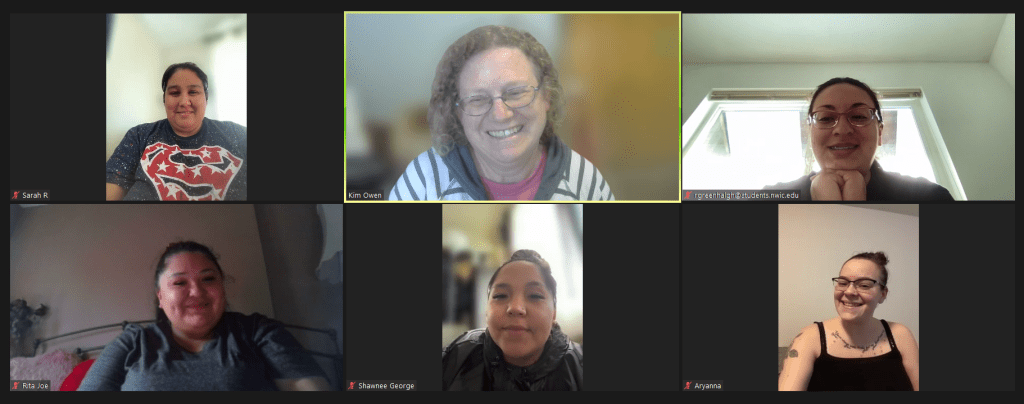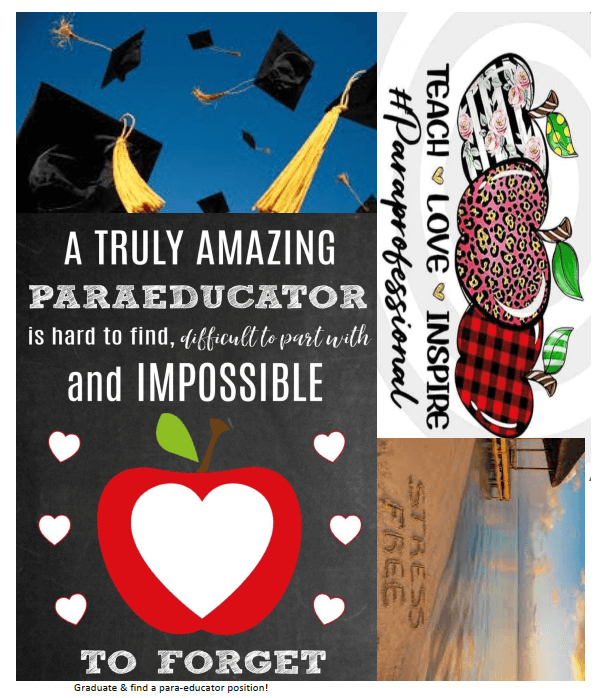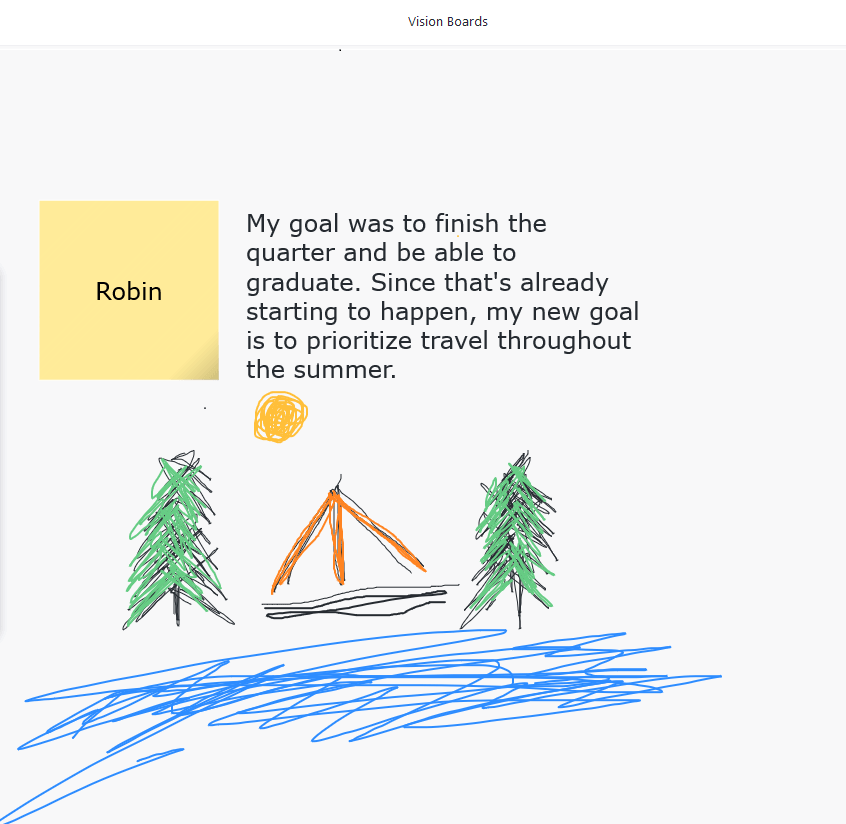
NWIC ECE Professional Learning Community 2022 Cohort. NWIC ECE students in this photo represent the Puyallup, S’Klallam, Muckleshoot/Tlingit, Lummi, and Crow Nations.
Author: Kim Owen, Graduation Coach
Co-Author: Nahrin Aziz, Project Director
For the past academic year, eight graduates-to-be and Northwest Indian College’s (NWIC) Graduation Coach, Kim Owen, met once a month to provide support toward successful course completion and degree attainment. The program, funded by the American Indian College Fund supports students who are in the final year of the two-year Associate of Applied Science – Transfer in Early Childhood Education (AAS-T ECE) degree program at NWIC.

Student’s vision for the next steps in educational career.
The students in NWIC’s program set individual and collective goals, planned how to achieve their goals, and shared study tips. These tips included evidence-based strategies about motivation, time management, prioritization, and goal setting. Students started each Professional Learning Community (PLC) session reflecting on how things were going and their respective progress toward their goals. Afterward, they broke into small groups to discuss specific topics and share experiences or suggestions with each other.
The college’s Graduation Coach also facilitated discussions about managing math anxiety, because this surfaced as a common concern among students who were finishing required math credits. When one student said she felt she was not “smart enough” to do math, we delved into when and why this feeling emerged, talked about experiences with math (both negative and positive), and brainstormed ways to overcome that fear. Participants also recognized and identified how they are always using math in their daily lives to highlight everyone is capable of doing math.

Student plans travel before the beginning Bachelor of Science in ECE program.
NWIC also used its PLC sessions to review upcoming deadlines related to graduation, such as completing and submitting documentation to graduate, earn diplomas, and participating in NWIC commencement. This helped to alleviate the pressures of juggling school, work, life, and meeting deadlines.
Students met with their Graduation Coach individually to receive customized support. The coach served as a study partner and helped students to stay focused on academic tasks. Students who participated agreed that the study sessions helped to motivate them.
During the final PLC session, students reflected on not both their final year and their entire journey at NWIC. The students’ responses all point to the power of NWIC in helping them learn to believe in themselves and in opening doors.

Student envisions milestones including graduation, wedding, and start of four-year ECE degree program.
Students also created vision boards based on the respective goals they set for themselves in previous PLC sessions. They dreamed of where they want to be in a year and how they hope to have some time to relax. Knowing that they made it to the finish line and could now think of what they wanted to do next was a relief for them.
Throughout the project, students reported what they found most helpful with the Graduation Coaching project. They appreciated having someone give them information and helping them to navigate through their final quarters. More powerful was the camaraderie they said they established with each other.
NWIC’s ECE degree program will offer this project for future years and the college believes it was an honor and privilege to work with its amazing students this year and looks forward to supporting future graduates in a similar fashion.








